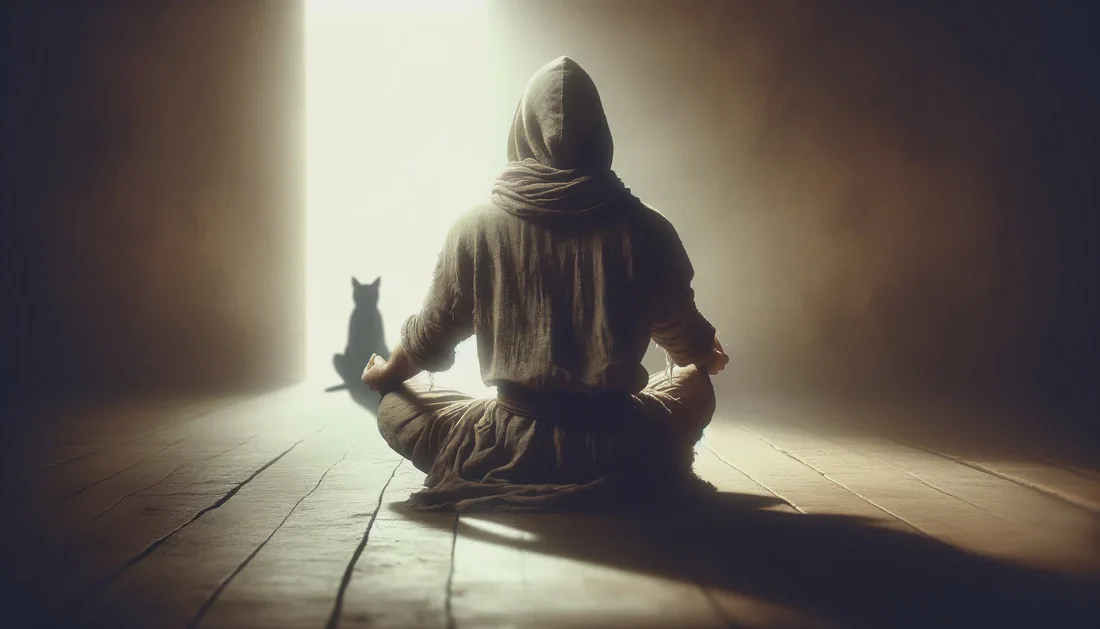Searching for the Black Cat: The Arrogance of Knowing the Truth


In our quest for knowledge and certainty, there lies a hidden danger—the arrogance of thinking we alone possess the truth. This arrogance can lead us to dismiss others as less informed or misguided. I’ve found myself falling into this trap more often than I’d like to admit, a flaw I’m neither proud of nor comfortable with. Omar Khayyám’s profound words in “Rubáiyát” capture this sentiment perfectly:
And do you think that unto such as you,
A maggot-minded, starved, fanatic crew,
God gave the Secret, and denied it me?
– Well, well, what matters it! believe that too.
This couplet reminds us of the condescension and disdain that often accompany the certainty of knowing the truth. Consider the well-known analogy: “A philosopher is like a blind man in a dark room looking for a black cat that isn’t there. A theologian is the man who finds it.” This humorous quip, attributed to thinkers including William James, illustrates the folly of certainty where absolute truth is elusive. It highlights the difference between open-ended philosophical inquiry and the sometimes dogmatic certainty of theology.
The Malamatiya Sufi order’s approach is a lesson in humility. This 9th-century mystical group, active in Greater Khorasan, believed in the value of self-blame and the reproach of the carnal self. They feared the praise and respect of others, viewing it as a path to worldly attachment and ego inflation. To combat this, they would deliberately act in ways that attracted public scorn—wearing tattered clothes, behaving in socially frowned-upon manners—ensuring their faults were known and constantly reminding themselves of their imperfections. Although I am not a Malamatiya Sufi, reading about their practices provided me with a perspective that I find valuable.
The teachings of the Malamatiya are relevant today, where social validation often inflates our egos. Here’s how we can apply their lessons:
- Practice Self-Reflection: Regularly question your beliefs and be open to other perspectives.
- Seek Humbling Experiences: Engage in activities that remind you of your limitations.
- Embrace Criticism: Welcome constructive feedback to foster growth and learning.
I’ve often caught myself assuming I had all the answers, only to realize I was as blind as the philosopher searching for the black cat in the dark. The journey towards knowledge and understanding requires humility and an openness to continual learning—qualities the Malamatiya embodied and that we can strive to incorporate into our daily lives.